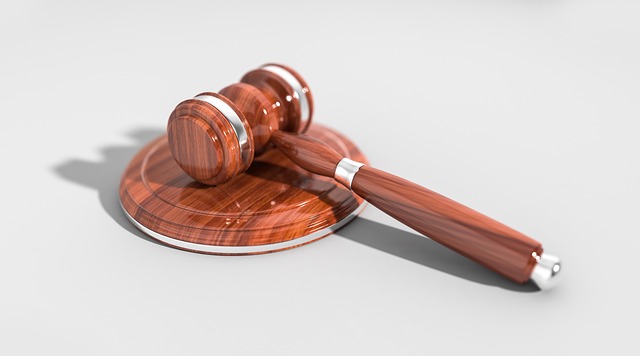Examples of Successful Consumer Protection Lawsuits play a pivotal role in environmental crime trials, holding polluters accountable. These lawsuits secure justice, compensation, and deter future crimes by exposing misrepresentations, forcing corporate reforms, and promoting environmental sustainability. Robust legal strategies, strong evidence, and meticulous investigations are key to winning these cases, setting important precedents for environmental stewardship.
“Environmental crime trials are a pivotal aspect of holding corporations accountable for ecological damage. This article delves into the legal landscape of uncovering environmental wrongdoings, focusing on consumer protection lawsuits as powerful tools for justice. We explore successful strategies and notable outcomes, highlighting case studies where corporate pollution faced scrutiny. Furthermore, we analyze the role of evidence in these trials and examine the impact and reforms stemming from high-profile cases, providing insights into the fight against environmental criminals. Discover examples of successful consumer protection lawsuits that have reshaped corporate accountability.”
- Uncovering Environmental Wrongdoings: A Legal Perspective
- Consumer Protection Lawsuits: Successful Strategies and Outcomes
- Case Studies: When Corporations Face Justice for Pollution
- The Role of Evidence in Environmental Crime Trials
- Impact and Reform: Lessons from High-Profile Cases
Uncovering Environmental Wrongdoings: A Legal Perspective
Uncovering environmental wrongdoings requires a meticulous legal approach, especially when dealing with white-collar and economic crimes. The complexity of these cases often involves intricate financial transactions, subtle impacts on the environment, and sophisticated strategies employed by perpetrators to evade detection. Consumer protection lawsuits play a pivotal role in holding businesses and individuals accountable for their actions. By examining financial records, expert testimony, and tangible evidence, legal professionals can reveal environmental wrongdoing that may otherwise remain hidden.
Successful examples of consumer protection lawsuits have established an unprecedented track record in securing justice and compensation for affected communities. These cases not only serve as deterrents but also send a powerful message that environmental crimes will not be tolerated. Through diligent investigation and robust legal strategies, winning challenging defense verdicts becomes achievable, ensuring that those responsible are held liable for the harm they have caused.
Consumer Protection Lawsuits: Successful Strategies and Outcomes
In the realm of environmental crime trials, consumer protection lawsuits play a pivotal role in holding accountable those who violate ecological standards. Successful strategies in these cases often involve showcasing substantial harm to both individual consumers and the broader environment. One notable example is when advocacy groups file suits against manufacturers found to have misrepresented the eco-friendliness of their products, leading to significant financial penalties and changes in corporate practices. These lawsuits not only secure justice for affected customers but also serve as a deterrence for other businesses engaging in similar white-collar defense tactics.
Beyond monetary damages, successful consumer protection cases can drive substantial environmental reforms. For instance, settlements have prompted companies to implement stricter adherence to regulations, embrace more sustainable production methods, and even contribute funds to philanthropic and political communities affected by their initial misconduct. Such outcomes underscore the importance of robust legal mechanisms in ensuring not only consumer safety but also the long-term health and sustainability of respective business operations and surrounding environments.
Case Studies: When Corporations Face Justice for Pollution
In recent years, environmental crime trials have gained significant attention as corporations face justice for their role in pollution and ecological damage. Case studies of successful consumer protection lawsuits highlight the growing trend of holding businesses accountable for environmental transgressions. These high-stakes cases not only seek financial compensation but also serve as a deterrent, sending a strong message to potential polluters.
One notable example is the lawsuit against a major industrial company accused of dumping toxic waste into local water sources. Through meticulous investigation and robust legal arguments, plaintiffs’ attorneys uncovered evidence of years of illegal activities, resulting in a substantial settlement. This victory demonstrates that white-collar defense strategies, aimed at avoiding indictment, must consider the severe consequences of environmental crimes. Such cases set precedents, influencing future legal battles and fostering a culture of environmental stewardship.
The Role of Evidence in Environmental Crime Trials
In Environmental Crime Trials, evidence plays a pivotal role in securing justice. Strong and compelling evidence is essential to prove beyond a reasonable doubt that environmental crimes have occurred. This includes scientific data, expert testimony, and documentation detailing the harm caused to ecosystems and communities. For instance, successful consumer protection lawsuits have often relied on extensive records of pollution levels, health impacts, and corporate communications revealing deliberate misleadings. These detailed and well-authenticated pieces of evidence serve as the backbone of jury trials in white collar and economic crimes cases, leading to significant verdicts or complete dismissal of all charges.
The presentation of solid evidence is crucial for holding perpetrators accountable and ensuring that they face the consequences of their actions. In these trials, investigators and prosecutors must gather thorough records of environmental violations, such as toxic waste disposal, air and water pollution, and habitat destruction. By presenting concrete examples and extensive documentation, the jury can better understand the extent of the damage and make informed decisions. This emphasis on evidence-based practices helps ensure that environmental crime trials are fair, transparent, and effective in upholding the law and protecting public interest.
Impact and Reform: Lessons from High-Profile Cases
Environmental crime trials have served as powerful catalysts for change, with high-profile cases leaving a lasting impact on both legal landscapes and corporate responsibility. By holding transgressors accountable, these trials not only deliver justice but also set precedents that shape future environmental litigation. One notable trend emerges from successful consumer protection lawsuits; companies are increasingly incentivized to adopt sustainable practices to mitigate legal risks and protect their reputations.
The outcomes of such cases often lead to substantial penalties and forced corporate reforms. For example, landmark lawsuits against polluters have resulted in multimillion-dollar settlements, with the funds allocated for environmental restoration projects. Furthermore, these trials encourage transparency and better corporate governance, as companies must now demonstrate due diligence in managing their environmental impacts. This shift benefits both corporate and individual clients, fostering a culture of accountability that extends beyond jury trials and into the boardrooms.
Environmental crime trials play a pivotal role in holding corporations accountable for their environmental transgressions. By examining cases like successful consumer protection lawsuits, navigating complex evidence in pollution-related trials, and learning from high-profile reforms, we can foster a more sustainable future. These legal processes not only bring justice to affected communities but also serve as examples of effective environmental governance. Through understanding both the legal mechanisms and real-world outcomes, we can encourage further action against environmental criminals, ensuring a cleaner and safer world for generations to come. Moreover, the strategies employed in successful consumer protection lawsuits provide valuable insights into how individuals can collectively stand against environmental degradation.






